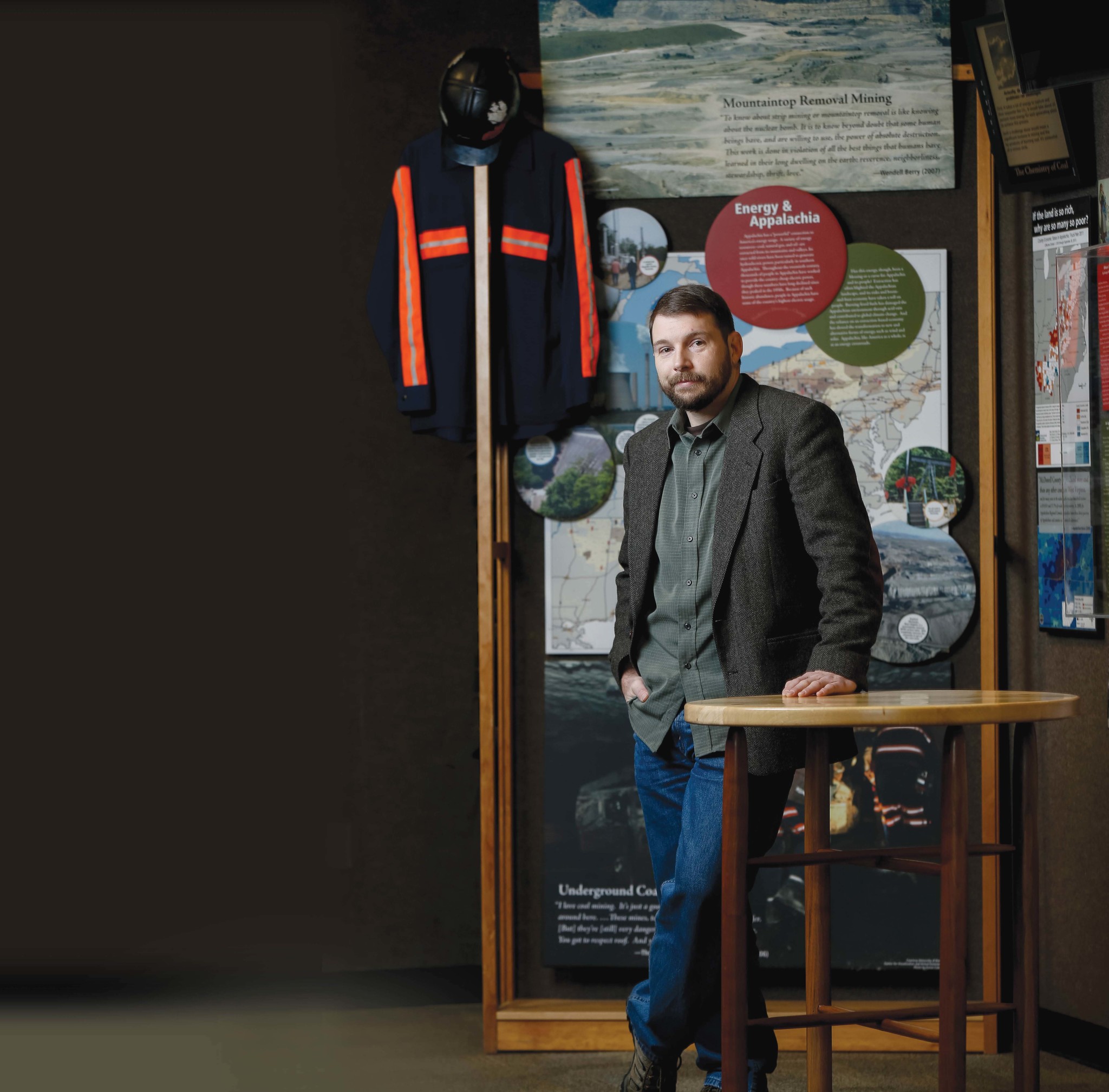
Former Underground Coal Miner and Environmental Advocate
How do you interpret the Commitment to “plain living”?
I think it’s important to first define plain living. To me, plain living means living a lifestyle that is not materialistic or resource-intensive. Although the United States constitutes only about 4.4 percent of the world population, we consume 25 percent of the energy and materials used worldwide each year. This consumption then translates into resource extraction practices that are devastating to both the environment and local communities, as well as the introduction of environmental contaminants worldwide. Study upon study has been completed linking our desire to live well beyond our means to many of the terrible injustices occurring throughout the world. That being said, I interpret Berea’s Commitment to plain living as a commitment to provide our students with the knowledge and skills they need to live well while consuming far less than the average U.S. citizen.
How do you see this encouragement day-to-day?
I do not see “plain living” being encouraged at Berea College, at least not in general. Students need to know why “plain living” is important as well how to live plainly. The Sustainability and Environmental Studies (SENS) program provides the most focus in these areas, and yet it has a very low student enrollment. “Plain living” is also not being addressed in students’ daily lives. The buffet style arrangement of food services encourages the idea of an endless food supply – one without consequence for wastefulness. Recycling is being emphasized more so than waste reduction, freshman dorms were just outfitted with micro-fridges and the college is still purchasing throw-away items for use at public events. These, and other campus norms, contribute to the message that nothing needs to change in the way we are living and consuming. Admittedly, I have formed very strong beliefs regarding this subject. Having grown up in a community devastated by coal mining – having been forced to move our children from their ancestral home due to potential health concerns – I understand the impacts of supply and demand more than most. I know that because of our nation’s desire for comfort, convenience and materialism, that tremendous harm is being done to people living where resources are being extracted. I know too that where resources are processed and turned into goods, harmful, and sometimes deadly toxins are released into the water people must drink and the air they must breathe. I fear we do too little to address these issues as an institution that is “investing in lives of great promise.”
How do you think Berea College could further incorporate “plain living” into the daily lives of the students here?
I firmly believe that an introductory SENS course should become a general requirement for all students attending Berea College. I also believe the college needs to continue expanding the agriculture program in sustainable food production and in student involvement as part of the Berea Experience. Changes such as these also have the potential for increasing the college’s financial resilience. Students well-educated in terms of resource consumption will develop less wasteful habits; students who understand where their food comes from will eat healthier. The college must also take a hard look at its own resource use and adopt uncompromising reduction practices. Simply building and remodeling structures to be more efficient is not enough. Achieving waste diversion accolades through recycling is not enough. Such tools are only effective when placed in the capable hands of people motivated to use them – people who understand the consequences of their over-consumption and take steps to address it.

